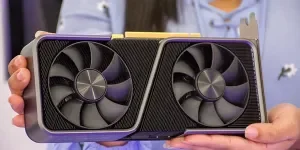Table of Contents
1. Introduction
2. Main types and key applications of industrial computers
3. Market overview of industrial computers in 2024
4. Essential considerations when selecting an industrial computer
5. Conclusion
Introduction
Industrial computers are specialized systems designed for tough environments where traditional computers would fail. These machines are engineered to withstand harsh conditions like extreme temperatures, dust, shock, and vibration, making them critical for industries such as manufacturing, oil and gas, and transportation. Whether running automation processes, managing complex data streams, or supporting IoT networks, industrial computers provide high reliability, durability, and performance. Their robust build and versatility ensure that businesses can maintain efficiency and productivity, even in the most challenging settings.
Main types and key applications of industrial computers

Fanless industrial computers
Fanless industrial computers are designed without the traditional cooling fans, using passive cooling techniques like heat sinks to disperse heat. This feature makes them particularly suitable for harsh environments where dust, dirt, or liquid contaminants could otherwise damage traditional systems. Their robust, compact design makes them ideal for confined spaces such as control panels and for operations in industries like manufacturing and automation. The absence of moving parts reduces maintenance needs and ensures quieter operation, making them highly reliable in environments that demand constant operation with minimal intervention.
Panel PCs for human-machine interfaces
Panel PCs combine a computer with a touchscreen interface, offering a versatile solution for human-machine interaction. They are commonly used in industries such as logistics, healthcare, and factory automation, where operators need to control and monitor processes efficiently. Panel PCs are designed to withstand industrial environments, often coming with rugged features like waterproofing and impact resistance. These systems are typically installed on production lines or integrated into equipment, facilitating seamless communication between machines and human operators while handling large volumes of real-time data processing.
Embedded systems for IoT and automation
Embedded systems play a pivotal role in the industrial Internet of Things (IoT) and automation. These compact computers are embedded into larger systems to manage specific tasks, such as real-time data collection and process control. With the rise of Industry 4.0, embedded systems are increasingly critical for connecting machinery, sensors, and devices across industrial settings, enabling more efficient production lines and smarter energy management. These systems are engineered to be highly durable and can function reliably in extreme conditions, including high temperatures and heavy vibrations, making them ideal for applications like smart factories and automated energy grids.
Ruggedized computers for extreme environments

Ruggedized computers are engineered for the most challenging conditions, including high-impact environments, exposure to extreme temperatures, and wet or dusty conditions. These devices are commonly deployed in industries such as mining, military, oil, and gas, where equipment needs to operate reliably under intense physical conditions. Built with reinforced enclosures and military-grade components, ruggedized computers can handle shock, vibration, and even water immersion, ensuring longevity and reliability in remote or harsh settings. This makes them indispensable for operations where downtime is not an option, and continuous performance is critical.
Market overview of industrial computers in 2024
In 2024, the industrial computer market is experiencing steady growth, largely due to the digital transformation of manufacturing and rising demand for automation and industrial IoT technologies. This trend reflects a broader shift toward smart manufacturing, as companies in sectors such as pharmaceuticals, automotive, and energy focus on optimizing resources and improving operational efficiency. According to Future Market Insights, the market is expected to grow at a compound annual growth rate (CAGR) of 5.5%, reaching an estimated value of $6.6 billion by 2028.
Key sectors driving demand: Manufacturing, Oil & Gas, and Logistics

As 2024 transitions into 2025, multiple sectors are increasingly driving demand for industrial computers. Manufacturing remains the dominant sector, with factories relying on automation and robotics to boost productivity and reduce costs, marking a major area for industrial computer applications. The oil and gas industry, meanwhile, depends heavily on industrial computers due to their durability and ability to operate in extreme conditions, which is crucial for remote or harsh environments. In logistics, the adoption of industrial computers to manage complex supply chains and enhance real-time data tracking continues to grow, with companies prioritizing ruggedized and fanless systems designed to withstand challenging conditions and high usage demands.
Technological advancements influencing the market
Technological innovations are significantly reshaping the industrial computer market as it moves into 2025. Integration with artificial intelligence (AI), machine learning, and Industry 4.0 trends allows industrial computers to handle substantial data loads from IoT devices, facilitating automated decision-making processes that improve operational efficiency. Edge computing solutions are also gaining traction, enabling data processing closer to the source, reducing latency, and optimizing real-time functionality. These advancements are critical for companies aiming to remain competitive in a rapidly evolving market, where efficient data handling and adaptive technologies have become essential for maintaining operational resilience.
Essential considerations when selecting an industrial computer
Environmental requirements: Temperature, dust, vibration
Industrial computers often operate in harsh conditions, such as extreme temperatures, high levels of dust, or constant vibration. Ensuring the computer is built to withstand these conditions is critical. For instance, fanless designs are preferred in dusty environments, as they prevent dirt from entering the system, reducing the need for regular maintenance. Similarly, systems used in transportation or factories often need to resist high levels of vibration and shock. These computers must also be able to function across wide temperature ranges, from freezing to extremely high temperatures, depending on the industry.
Performance needs: Processing power, memory, and storage options

The performance requirements of industrial computers vary widely depending on the application. Systems that need to handle real-time data processing, AI applications, or complex automation tasks require high-performance processors, such as multi-core CPUs. In addition, adequate memory is essential for smooth operations. For example, systems with 16GB or more of RAM can handle more complex processes. Storage solutions like SSDs are favored over HDDs for their speed and durability, especially in environments where mechanical failures could disrupt operations. The ability to scale performance to meet increasing demands is also a critical factor.
Durability and longevity: Expected lifespan and maintenance needs
Industrial computers are built for durability and are often expected to operate continuously for years with minimal maintenance. Materials such as stainless steel or rugged aluminum housing help protect the system from damage caused by impacts or environmental factors. These systems often have life cycles exceeding five to ten years, making them reliable long-term investments. Minimizing downtime and repair costs is a key advantage, especially with fanless designs that reduce the risk of failure from moving parts.
Customization and scalability: Flexibility for future upgrades
Many industries require systems that can adapt to future needs. Industrial computers with modular designs allow for easy upgrades of components such as processors, memory, or connectivity options, ensuring the system can grow with the business. This is especially important for companies that anticipate changes in technology or expansion in operations. Scalability provides flexibility and helps future-proof investments by avoiding the need for frequent replacements.
Power consumption and energy efficiency
Power efficiency is another important factor, especially in industries with large-scale operations or where sustainability is a priority. Fanless designs not only reduce energy consumption but also contribute to lower operational costs. Industrial computers with lower thermal output can maintain performance for longer periods without overheating, making them ideal for 24/7 operations. Systems that prioritize energy efficiency also align with environmental goals, helping businesses reduce their carbon footprint.

Conclusion
Selecting the ideal industrial computer in 2025 hinges on understanding both the operating environment and specific performance requirements. Systems must withstand challenging conditions while delivering the necessary processing power, memory, and storage. Durability is essential, as businesses expect long-lasting solutions that minimize downtime and maintenance. Additionally, choosing scalable and customizable systems ensures the flexibility to meet future technological needs. With energy efficiency also a growing priority, the right choice can enhance both operational efficiency and sustainability, helping businesses maintain competitive performance in increasingly automated and demanding industries.



